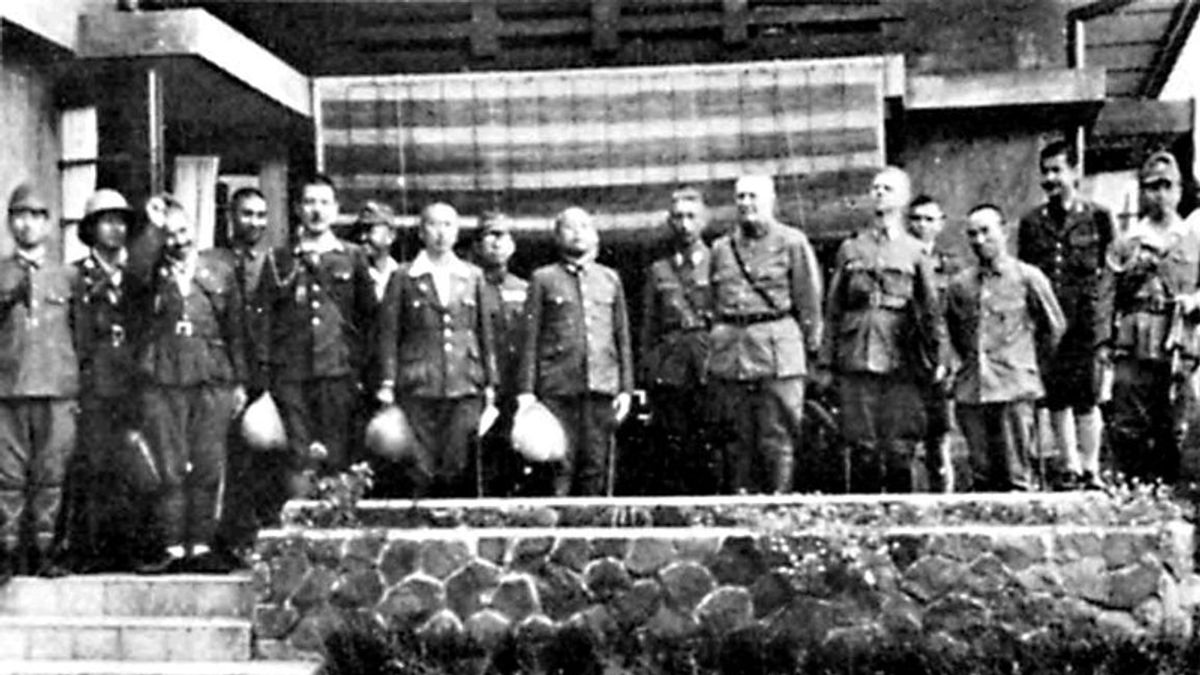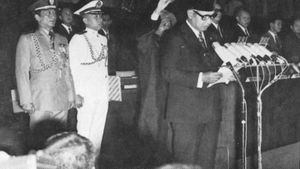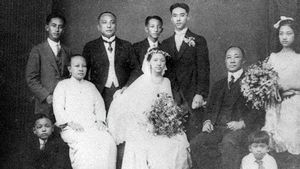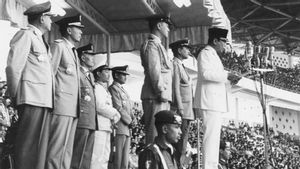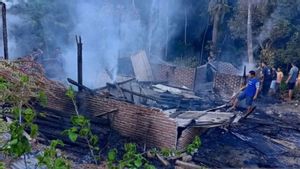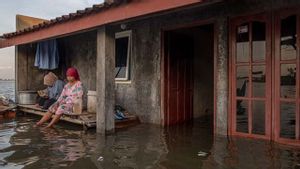JAKARTA - Today's history, 80 years ago, March 28, 1942, Japan and the natives succeeded in crushing the Dutch power from the land of Sumatra. The collaboration is considered a mutual victory. Because the natives dared to take up arms to conquer the Netherlands. the victory further strengthened the narrative of Japan as the “liberator” of Asia. It is also proof that the natives were involved in expelling the Dutch.
The emergence of Japan as a great power in World War II was so surprising. They had made the United States (US) guts shrink. The Japanese attack on the US naval base, Pearl Harbor, became the origin.
This success made Japan's guts increase. The liberation of countries in Southeast Asia that are still colonized is also considered the latest target. The release was considered to be beneficial to Japan. Therefore, Japan moved quickly. One by one, he controlled the archipelago. They entered through Kalimantan and successively controlled the major cities on the island. Tarakan, Balikpapan, Pontianak, Samarinda, Banjarmasin, and Palembang.
Not yet satisfied. The Japanese immediately began conducting operations to control the island of Java on March 1, 1942. They also made landings in three places: Banten, Indramayu, and Bojonegoro. Signs of Japan's victory over the Dutch East Indies began to appear on March 5, 1942. Japan had conquered Batavia, which incidentally was the center of the Dutch government.

The Japanese attack devastated the Dutch war fleet. So did the Dutch soldiers. As a result, the Dutch began to be forced to sign the Kalijati agreement, Subang, West Java. The agreement, which was signed on March 8, 1942, contained an agreement that the Netherlands would hand over its power in the Dutch East Indies to Japan.
"The result of the meeting between the two parties was the unconditional surrender of the Dutch East Indies Army to Japan. This transfer of power was marked by the signing of the Kalljati Agreement between General Ter Poorten and Lieutenant General Hitoshi Imamura."
“Japan's goal of attacking and occupying the Dutch East Indies was to control natural resources, especially oil. This was intended to support Japan's war potential and to support its industry. By the Japanese, the island of Java will be used as a supply center for all military operations in Southeast Asia, while Sumatra will be used as the main source of oil," said Amelia F. in the book Pendudukan Jepang di Indonesia (2020).
It is possible that the Dutch East Indies government had changed hands to Japan. However, the fervor of the Dutch resistance has not been completely exhausted. The resistance of the Dutch soldiers in the Sumatra area, for example. They still felt the Dutch East Indies were in their power.
Japan was no less enthusiastic. The fight was returned. The Land of the Rising Sun also sent an army of the 25th Army to move to take control of the island. Japan is not alone either. The Japanese resistance gained sympathy from the natives. Therefore, in the Japanese resistance, they collaborated with the natives to crush the Dutch until they surrendered on March 28, 1942, which is a historical record today.

“On March 8, 1942 Japan received a declaration of surrender from the Dutch East Indies. The statement was widely spread through the last broadcast of the colony's official mouthpiece, namely the Nederlandsch Indische Radio Omprope (NIROM), which is based in Bandung."
"Although the island of Java has fallen, the resistance continues on the island of Sumatra, the Japanese 25th Army immediately moved to take control of the island. They received help from the local population and their fifth colony, Perkumpulan F. One by one the Dutch East Indies troops were destroyed until on March 28, 1942, they surrendered,” concluded Marwati Djoened Poesponegoro in the book Sejarah Nasional Indonesia Jilid V (2008), regarding the Dutch surrender to the Japanese on March 28, 1942, which becomes today's history.
SEE ALSO:
The English, Chinese, Japanese, Arabic, and French versions are automatically generated by the AI. So there may still be inaccuracies in translating, please always see Indonesian as our main language. (system supported by DigitalSiber.id)
